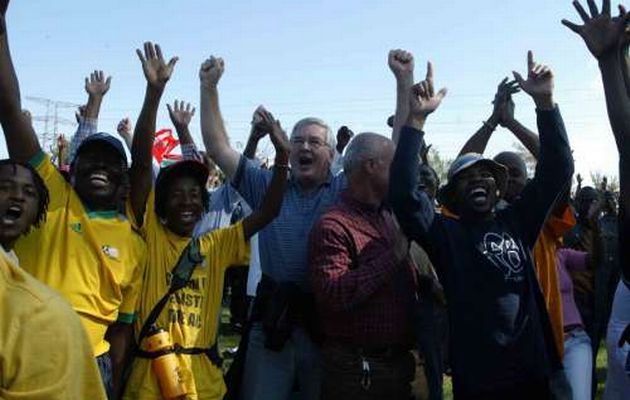
A new South Africa census figures reveal the income of white households is six times higher than black ones.
President Jacob Zuma said the census showed the black majority is still at the “bottom of the rung”, 18 years after white minority rule ended.
The statistics showed that while the income of black households had increased by nearly 170% in the last decade, they still earned the least.
The population now stands at nearly 52 million, 79% of whom are black people.
It has risen by seven million since 2001.
The 2011 census statistics showed that children below the age of five number nearly 11 million, making them the largest age group.
“It could be that HIV [infection] rates have leveled out and fertility has begun to recover,” said Statistics South Africa’s demographic analysis executive director, Diego Iturralde.
The average annual income of a white household is about 365,000 rand ($42,000), followed by Indians at 251,000 rand, people of mixed race at 251,500 rand and blacks at 60,600 rand, it showed.

Other key findings include:
• Nearly 30% of the labor force is unemployed
• More than three million children (nearly 4%) are orphans
• More than nine million people live in homes while the number of shack-dwellers has risen since 2001 to nearly two million
• The number of homes with flush toilets has increased from 50% in 2001 to 57%
• The number of people who have completed higher education has increased to 11.8%, from 8.4% in 2001
• The number of homes with electricity has increased from 58.2% in 1996 to 84.7% in 2011
• Paraffin is the main energy source at 7.5% of all homes
• Mobile phone ownership has increased from less than 32% a decade ago to nearly 90%.
Jacob Zuma said the census showed that while “great strides” have been made since racial segregation ended in 1994, much still needed to be done to end inequality.
“These figures tell us that at the bottom of the rung is the black majority who continue to be confronted by deep poverty, unemployment and inequality, despite the progress that we have made since 1994,” he said.
“Much remains to be done to further improve the livelihoods of our people especially in terms of significant disparities that still exist between the rich and poor.”
Jacob Zuma pledged that by 2030 the African National Congress (ANC) government would make sure that each community had a clinic, school, library and police station.